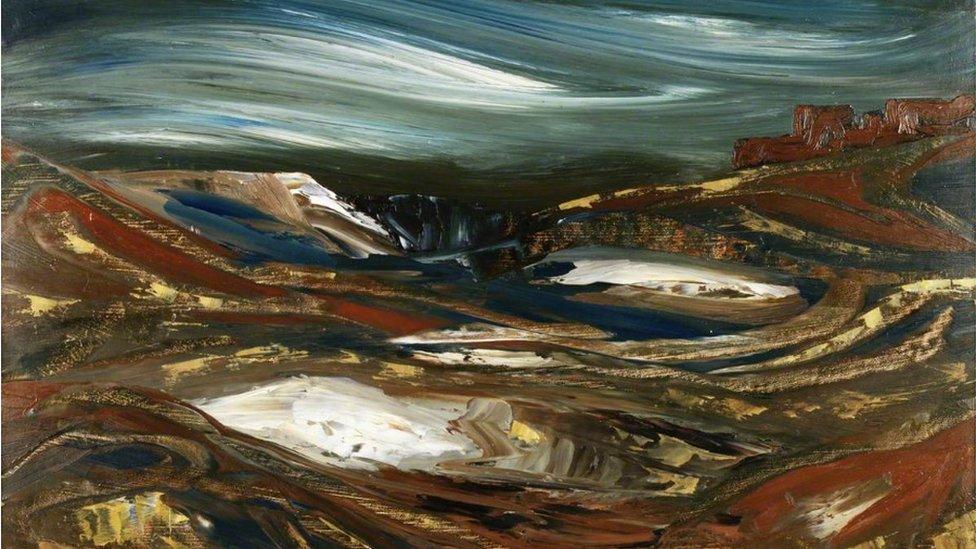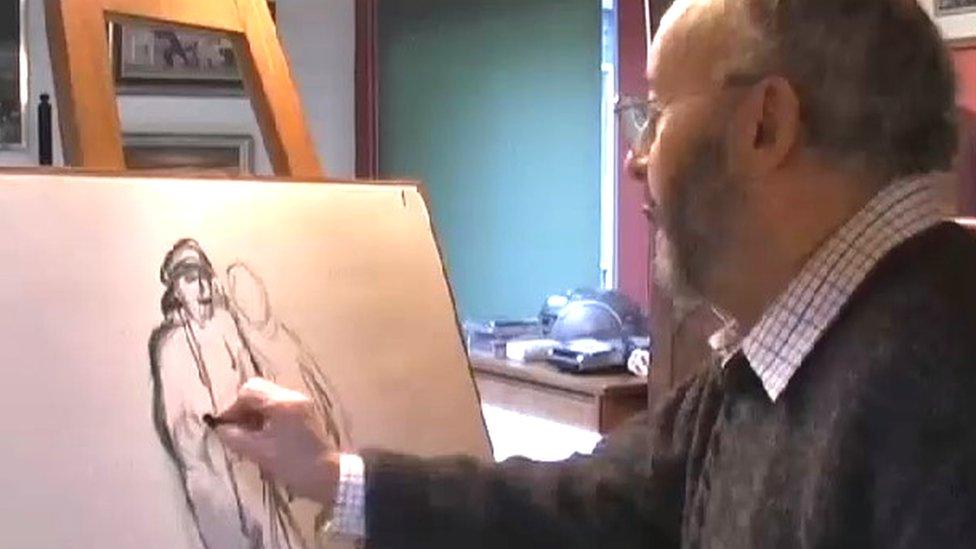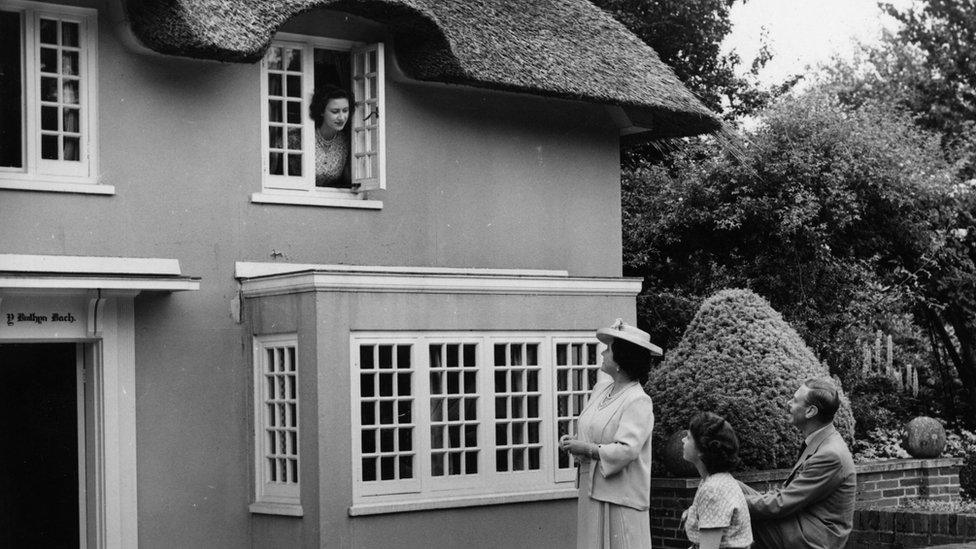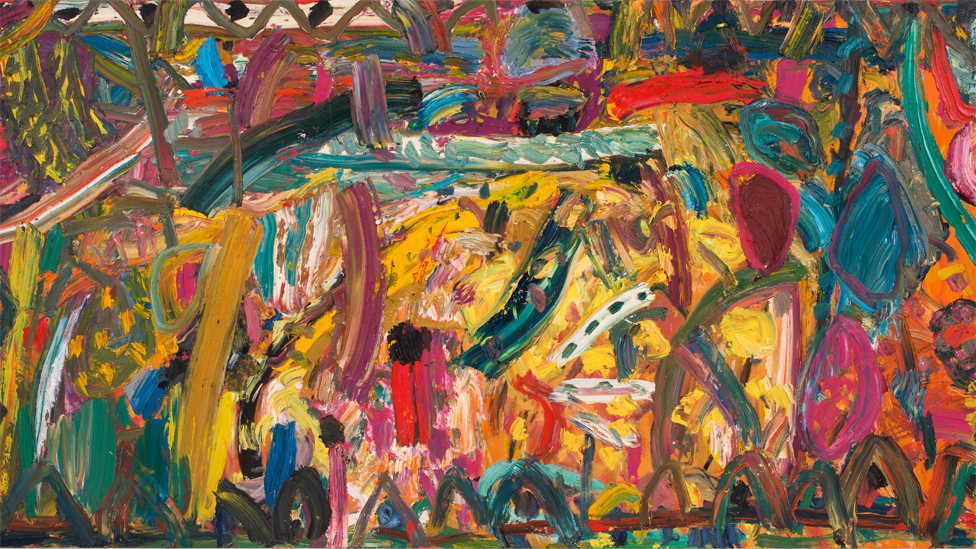Karel Lek: Jewish painter who found 'freedom' in Wales dies
- Published

Mr Lek's paintings included his 1970 work focused on the Parys Mountain copper mine on Anglesey
An artist who fled the Nazis during World War Two and made Wales his home, has died.
Karel Lek was a child when his Jewish family left Belgium after Hitler invaded in 1940.
Mr Lek, who was 90 and lived on Anglesey, had described finding "freedom" in Wales, with the scenery inspiring his work.
His work is contained in many public and private collections, including the National Library of Wales.
During an interview with BBC Wales in 2007, he said after experiencing prejudices at school in Belgium, he found freedom in his new home.
"And the wonderful thing about Wales, and I suppose England as well, is that you are free to speak your mind," he added.
"People may not agree with you, but you are free. You won't be arrested or put in a concentration camp."
Mr Lek's art focused on the scenes he observed around north Wales, frequently sketching couples together and jazz musicians at work.
Allow X content?
This article contains content provided by X. We ask for your permission before anything is loaded, as they may be using cookies and other technologies. You may want to read X’s cookie policy, external and privacy policy, external before accepting. To view this content choose ‘accept and continue’.
He was educated at Friars Grammar School in Bangor and Liverpool College of Art, before joining the Royal Cambrian Society in 1955 and being made an MBE in 2005.
"What I'm doing here is not my doing, it was Hitler's doing," he added in the interview.
"Because I am an artist, north Wales, Anglesey and Gwynedd, are my main source of inspiration.
"And I like to give something back to Wales."

Karel Lek at work in 2007
He gave examples of this as busking in a local hospital every week to raise funds.
Jasmine Donahaye, writer and researcher in Welsh Jewish culture, said: "Karel Lek's experience differed from some of the better-known Jewish refugee artists who worked for a period in Wales: he arrived as a child, and made Wales truly his home.
"His prints in particular capture moments of human interaction and character that are acutely but affectionately observed, and his wonderful body of work deserves greater recognition."
Following his death, the National Library of Wales posted a photo of his 1970 painting Parys Mountain that it has in its collection.
It tweeted, external: "We're saddened to hear of the passing of the artist, Karel Lek, who came to Wales as a refugee and made this country his home."
- Published29 September 2019

- Published8 April 2017
